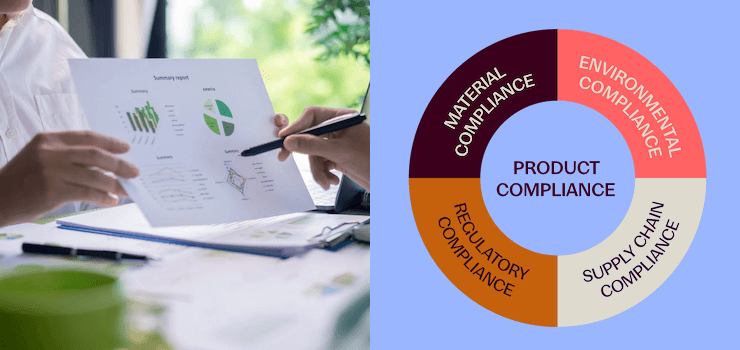On April 24, 2013, more than 1,000 people in Bangladesh lost their lives when the textiles factory they worked at collapsed. At that time, a number of big European clothing companies had products manufactured there. Following this disaster, France saw demands for companies to exercise a greater degree of social responsibility and to be subject to a statutory obligation to exercise due diligence become ever louder – an obligation other countries and states had already adopted in relevant legislation (see, for example, the UK Modern Slavery Act or the California Transparency in Supply Chains Act).
Loi sur le devoir de vigilance
By passing the new Due Diligence Act („Loi sur le devoir de vigilance“) on February 21, 2017, France has taken a decisive step toward enshrining social responsibility in corporate policy and conduct. This law covers on the one hand companies headquartered in France, with a workforce greater than 5,000 and on the other hand corporations with their head office outside France but with subsidiaries in France that employ more than 10,000 workers. As of January 1, 2018, such enterprises are obliged to draw up and publish a due diligence plan that contains verifiable measures they have put in place to prevent human rights violations and damage to the environment from taking place along their production chains. The process also encompasses the systematic identification and appraisal of the impacts a company and its suppliers can have on affected third parties.
France’s Due Diligence Law – more comprehensive than UK Modern Slavery Act or the California Transparency in Supply Chains Act
In the original wording of the law passed on February 21, 2017, failure by such businesses to fulfil their due diligence obligation would have exposed them to litigation and a potential fine of up to €30 million. This section of the law was, however, amended by France‘s Constitutional Council on March 23, 2017. Nevertheless, any civilian still has the right to bring an action against a company if the civilian in question is harmed or disadvantaged in some way. Although the amended version of this French law that came into force on March 23, 2017, has lost some of its bite as a financial deterrent, its binding nature is more comprehensive than that of, for example, the UK Modern Slavery Act or the California Transparency in Supply Chains Act. Corporations covered by these two pieces of legislation are obliged merely to submit relevant reports.
The new French law, on the other hand, forces the companies bound by it to actually implement a series of measures. It is, therefore, not enough simply to publish a report on the actions being taken – or not being taken – in this area. Other countries, such as Australia or the Netherlands, have also debated or actually passed laws similar to this since 2017.
What should be disclosed in the vigilance plan?
The annual public vigilance plans must include:
- A mapping of the risk (risk identification and prioritization)
- Procedures to regularly assess how subsidiaries, suppliers, and subcontractors are performing against this risk mapping
- Measures to prevent and mitigate serious violations
- A functioning alert mechanism that collects reporting of existing or actual risks
- Monitoring mechanisms to evaluate implementation and effectiveness of measures implemented
Companies must disclose the systems they have in place to identify, prioritize, prevent, and mitigate infringements that might happen in their supply chains and need to be able to explain the rationale behind their measures.
iPoint Supply Chain Survey on the SustainHub
Using the new iPoint Supply Chain Survey to engage with your supply chain supports you to make the case that the systems you have included in your Vigilance Plans are adequate and efficient.

Start to communicate with your supply chain today no matter if you want to collect information on social aspects like human trafficking or anti-slavery, collect information about the usage of cobalt or find out if your suppliers are prepared for BREXIT.
> Check out the new iPoint Supply Chain Survey – A survey tool that grows with your supply chain





.png)
